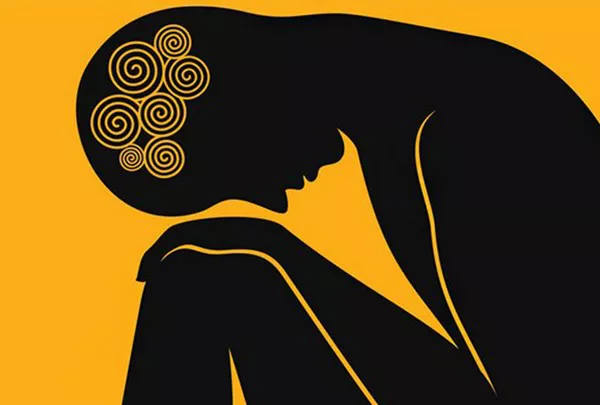Bipolar I Disorder is a complex mental health condition characterized by significant mood swings that include manic and depressive episodes. This article provides an in-depth exploration of Bipolar I Disorder, delving into its causes, symptoms, diagnosis, and treatment options. Understanding these aspects is crucial for effective management and improving the quality of life for those affected.
What is Bipolar I Disorder
Bipolar I Disorder is defined by the occurrence of at least one manic episode, which may be followed by depressive episodes. The disorder can significantly impair daily functioning and can lead to serious complications if left untreated.
Causes of Bipolar I Disorder
Genetic Factors
Genetics play a substantial role in the development of Bipolar I Disorder. Research indicates that individuals with a family history of bipolar disorder are at a higher risk of developing the condition. Studies of twins and families suggest a hereditary component, although no single gene has been identified as the definitive cause.
Neurobiological Factors
Neurobiological factors also contribute to the onset of Bipolar I Disorder. Abnormalities in neurotransmitter systems, particularly those involving serotonin, dopamine, and norepinephrine, have been implicated. Brain imaging studies have shown differences in brain structure and function in individuals with bipolar disorder, which may influence mood regulation.
Environmental Triggers
Environmental factors can act as triggers for Bipolar I Disorder, particularly in those with a genetic predisposition. Stressful life events, significant changes, or trauma can precipitate episodes. Seasonal changes and sleep disturbances have also been linked to mood swings in bipolar disorder.
Symptoms of Bipolar I Disorder
Manic Episodes
Manic episodes are characterized by elevated mood, increased energy, and heightened activity levels. Individuals may experience grandiosity, decreased need for sleep, excessive talkativeness, racing thoughts, distractibility, and engaging in risky behaviors. These symptoms can significantly impair social and occupational functioning.
Depressive Episodes
Depressive episodes in Bipolar I Disorder involve persistent feelings of sadness, hopelessness, and a lack of interest in previously enjoyed activities. Symptoms include changes in appetite and sleep patterns, fatigue, difficulty concentrating, and thoughts of death or suicide. These episodes can severely impact daily functioning and quality of life.
Mixed Episodes
Mixed episodes, where symptoms of both mania and depression occur simultaneously or in rapid succession, can also be observed. This can complicate diagnosis and treatment, as individuals may exhibit behaviors and feelings characteristic of both manic and depressive states.
Diagnosis of Bipolar I Disorder
Clinical Evaluation
The diagnosis of Bipolar I Disorder involves a comprehensive clinical evaluation by a mental health professional. This includes a detailed patient history, assessment of symptoms, and evaluation of the impact on daily life. The clinician will use standardized diagnostic criteria, such as those outlined in the Diagnostic and Statistical Manual of Mental Disorders (DSM-5), to determine the presence and severity of the disorder.
Differential Diagnosis
Differentiating Bipolar I Disorder from other psychiatric disorders is crucial for accurate diagnosis and effective treatment. Conditions such as major depressive disorder, schizophrenia, and borderline personality disorder can present with overlapping symptoms. A thorough evaluation helps in distinguishing Bipolar I Disorder from these and other mental health conditions.
Diagnostic Tools
Additional diagnostic tools may include mood questionnaires, self-report scales, and structured interviews. These tools assist in quantifying the severity and frequency of mood episodes, providing valuable information for diagnosis and treatment planning.
Treatment of Bipolar I Disorder
Pharmacological Interventions
Pharmacological treatment is a cornerstone in managing Bipolar I Disorder. Medications commonly prescribed include:
Mood Stabilizers: Lithium and valproic acid are frequently used to stabilize mood and prevent manic and depressive episodes.
Antipsychotics: Atypical antipsychotics, such as quetiapine and olanzapine, can be effective in managing manic and mixed episodes.
Antidepressants: These are sometimes used to treat depressive episodes, but their use must be carefully managed due to the risk of inducing manic episodes.
Psychotherapy
Psychotherapy plays a critical role in the treatment of Bipolar I Disorder. Cognitive-behavioral therapy (CBT) is particularly effective in helping individuals manage symptoms, address negative thought patterns, and develop coping strategies. Interpersonal and social rhythm therapy (IPSRT) focuses on stabilizing daily routines and improving interpersonal relationships, which can help regulate mood.
Lifestyle and Support
Lifestyle modifications and support are essential components of managing Bipolar I Disorder. Regular physical activity, a balanced diet, and consistent sleep patterns can help stabilize mood. Support from family, friends, and support groups can provide emotional support and practical assistance.
Long-term Management
Long-term management of Bipolar I Disorder involves ongoing monitoring and treatment adjustments. Regular follow-ups with a mental health professional are necessary to track progress, adjust medications, and address any emerging issues. Education about the disorder and proactive self-management strategies are vital for long-term stability.
See Also: Mood Disorders: Types, Causes, Symptoms, Diagnosis & Treatment
Conclusion
Bipolar I Disorder is a multifaceted condition that requires a nuanced understanding of its causes, symptoms, diagnosis, and treatment. Advances in research and treatment continue to improve the management of the disorder, offering hope for those affected. Through comprehensive care and support, individuals with Bipolar I Disorder can achieve a better quality of life and manage their symptoms effectively.


